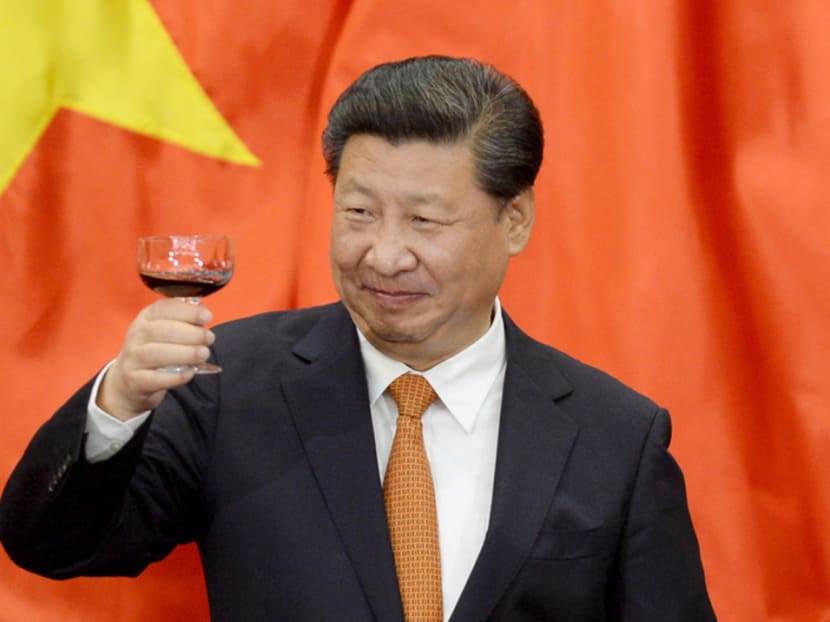Xi’s push to become Communist Party ‘core’ highlights power struggles
BEIJING — A push to designate President Xi Jinping as the “core” of China’s Communist Party suggests efforts to strengthen his hand in a year of political manoeuvring for top party posts.

A push to label Chinese President Xi Jinping as the ‘core’ of China’s Communist Party could signal a shift in the country’s political landscape. Photo: REUTERS
BEIJING — A push to designate President Xi Jinping as the “core” of China’s Communist Party suggests efforts to strengthen his hand in a year of political manoeuvring for top party posts.
At least seven provincial-level party bosses, including the leaders of Jiangsu, Sichuan and Tianjin, have in recent weeks publicly proclaimed Mr Xi as the party’s core and pledged to uphold his leadership.
The semantic change could signal a shift in China’s elite politics, which have for more than three decades stressed collective leadership to avoid the Mao Zedong-style personality cult blamed for fuelling the social chaos of the Cultural Revolution. Adopting it — something analysts said could happen as soon as next month’s National People’s Congress (NPC) in Beijing — could free Mr Xi’s hand to help shape the party’s leadership during a twice-a-decade reshuffle next year.
“If all this is really pointing to the declaration of Xi as the ‘core’ leader, then it suggests there might be some big changes at the 19th Party Congress,” said Dr Joseph Fewsmith, a political science professor at Boston University who studies China’s elite politics. The move would “make the 19th Party Congress even more critical in establishing the party leadership”.
Designating Mr Xi as essential to the party would cap more than three years in power, during which he has taken a leading role in economic planning and embarked on a massive campaign against graft.
While the practical applications are difficult to gauge, it could potentially make it harder for anyone to question Mr Xi’s personnel choices and signal a willingness to break with the established practices for promoting top officials who have governed China’s recent transitions of power.
For Mr Xi, “the official adoption of the phrase will likely happen soon”, said Dr Zhang Ming, a political science professor at Renmin University in Beijing. “The sooner probably the better, because the strengthened mandate will help personnel arrangements in his favour.”
A formal pronouncement — perhaps at the NPC or a Politburo meeting — could firm up Mr Xi’s status ahead of next year’s gathering, when as many as five of the seven members of the Politburo’s supreme Standing Committee could be replaced.
Such changes to the party’s rigid lexicon are unusual. Mao was often referred to as the party’s “head” or “great helmsman”. The “core” concept appears to have been introduced by former Chinese leader Deng Xiaoping to anoint then-little-known Jiang Zemin as his successor.
While the term was used to describe Mr Jiang after he became president, it fell out of favour under president Hu Jintao, according to an analysis by Ms Wendy Zhou, a research assistant with the University of Hong Kong’s Journalism and Media Studies Centre. Mr Hu was usually referred to as “general secretary” — first among nine equals then on the Standing Committee.
Still, the push to give Mr Xi a “core” designation is potentially “a sign of internal opposition and party infighting because a mid-term power transition is around the corner and he felt the need to emphasise something he appears to already have”, said Mr Zhang Lifan, a Beijing-based historian and political commentator. “In Chinese politics, what you seek can show what you lack.” BLOOMBERG





